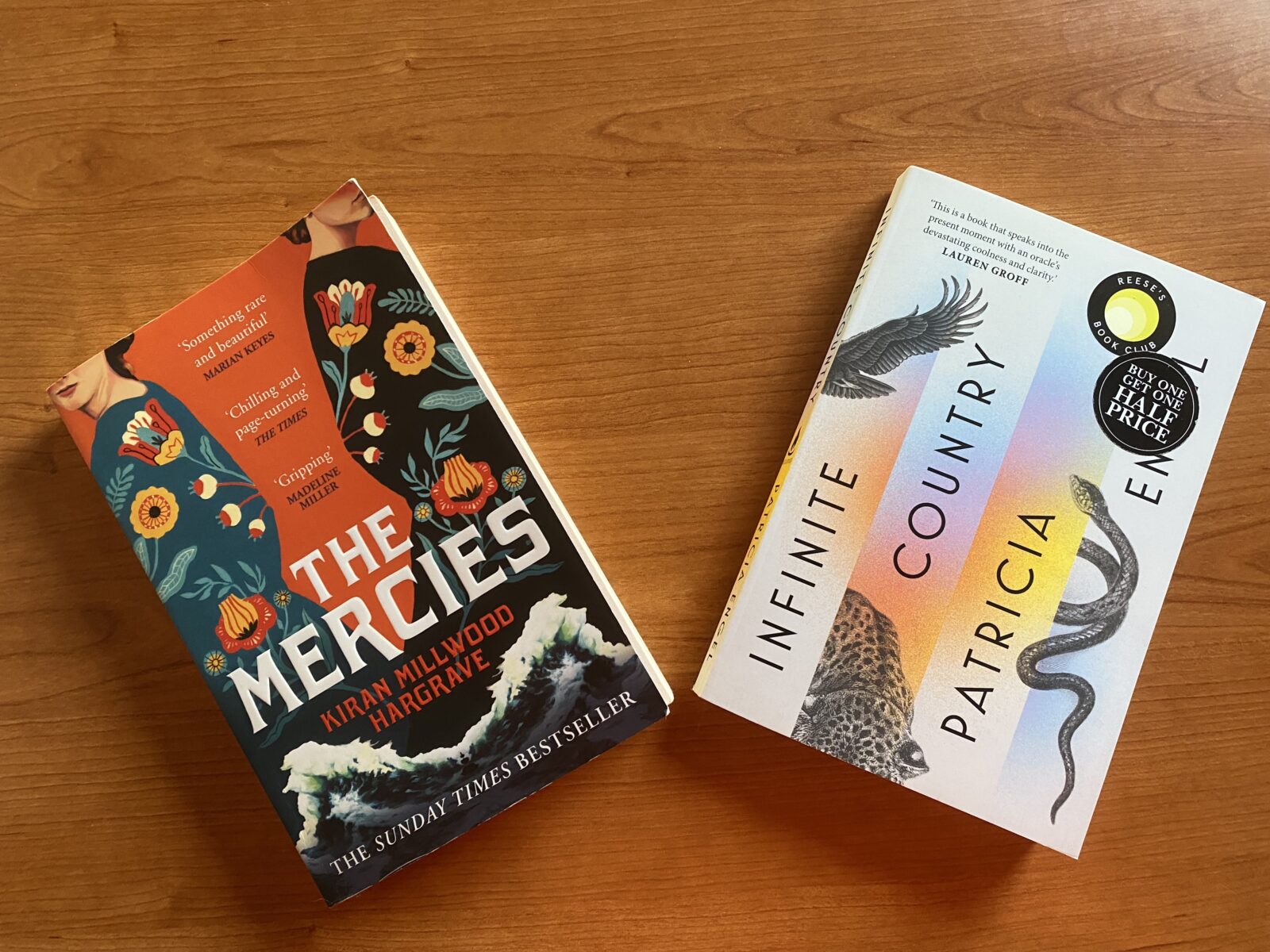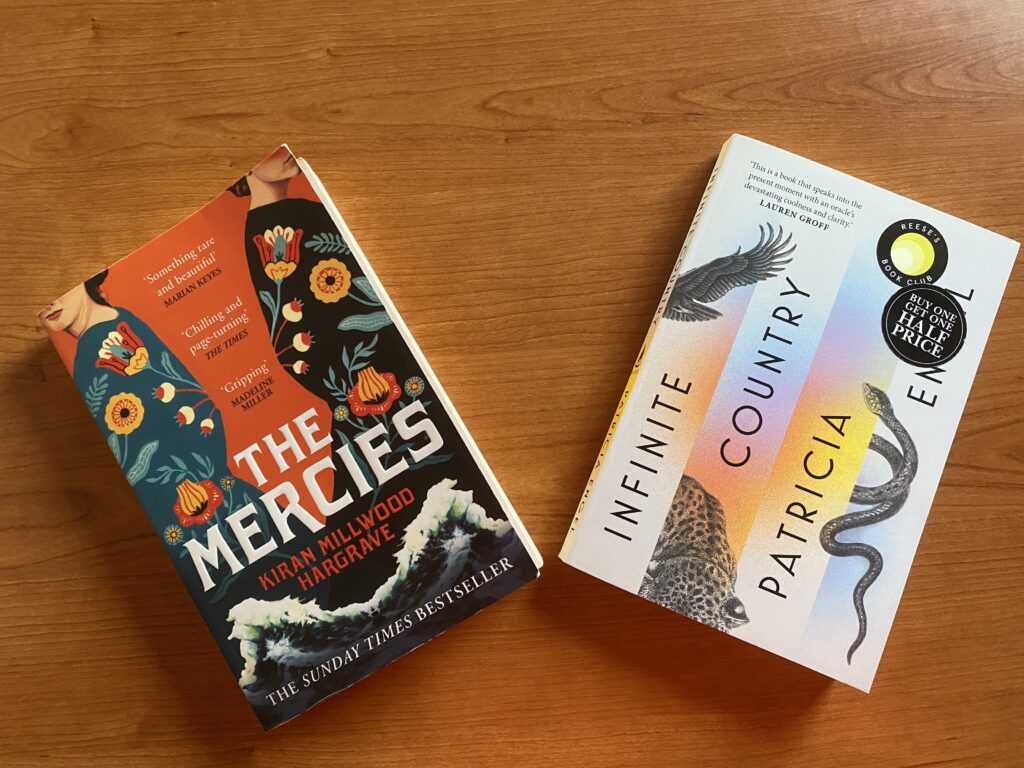The Mercies, Kiran Millwood Hargrave
I have been wanting to read The Mercies for a long time, and finally bumped it up to the top of my TBR list. The book takes place in a fishing village in the north of Sweden in the early 1600s. One day there is a storm while the men are at sea, and none of them return alive. The women of the village learn to survive on their own, fishing and taking up traditionally masculine tasks. That is, until the king sends a commissioner to teach the women a lesson in femininity, accusing two of witchcraft and setting into motion a devastating turn of events. The Mercies weaves an intricate story simultaneously connecting survival, female love, miscarriage, and the history of men burning women alive for being just that – women who were different or out of the norm or who men could not control – that most people prefer to ignore, or, even worse, believe the lie that the women deserved it and carry on. Books that make us examine history with a critical eye are vitally important, especially in today’s world of conspiracy theories and false information.
Infinite Country, Patricia Engel
Infinite Country takes place between Colombia and the US, and how the US’s inhumane laws regarding immigration force families, who only want better lives for themselves and their children, into appalling situations that oftentimes have terrible consequences. Talia is a young Colombian American who was born in the US and grew up in Bogotá, and wants to rejoin her mother and siblings in the US. Her mother and older sister are undocumented, and her only chance to ever see them again is to go to the US herself, but that means she has to leave her father behind, who was deported from the US and denied reentry for the rest of his life. Engel’s narrative portrays immigration as the heartrending thing it is; no matter where you go and what you choose to do, you’re always leaving something or someone behind. I think about immigration a lot as I was an immigrant – of course, it is often not thought about like that when it is a white person moving to a different country, I get called an “expat”, but in reality that is what I did. I immigrated. And to pretend that what I did is any different from what people at the southern border of the US, or the southern border of Spain for that matter, are doing just because I had papers and some of them don’t, is fantastical at best and racist and ignorant at worst.

